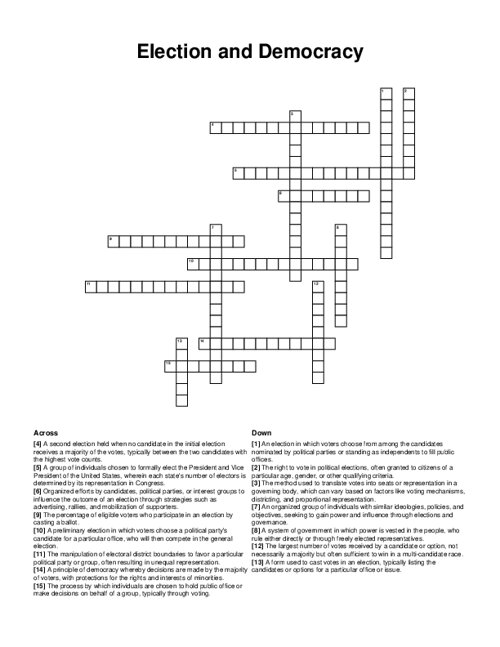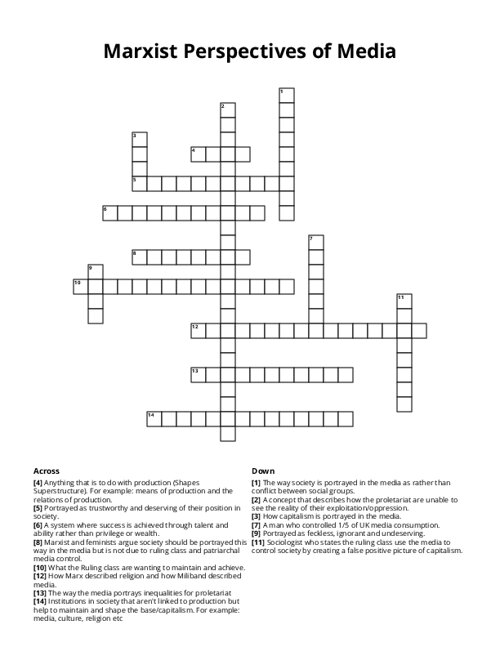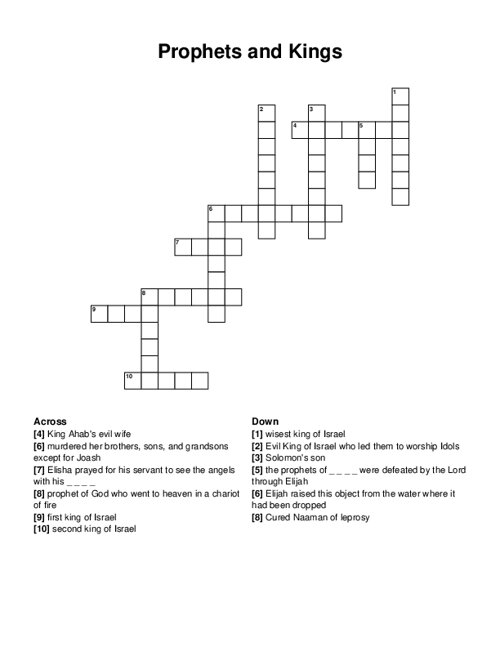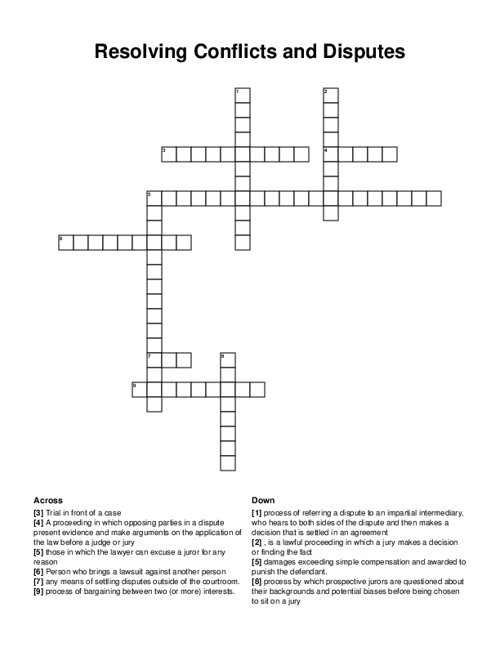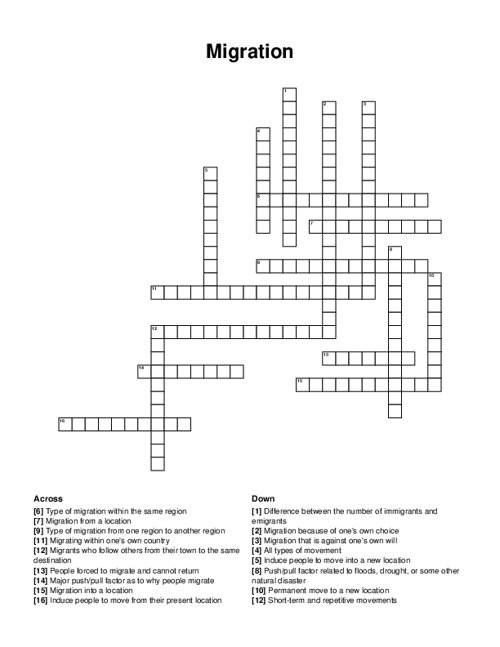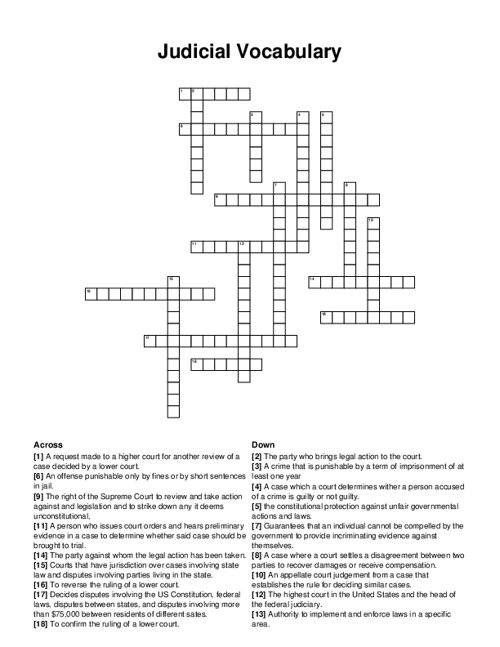Election and Democracy Crossword Puzzle
Download and print this Election and Democracy crossword puzzle.
Related puzzles:
Browse all Law / Government Puzzles
QUESTIONS LIST:
- democracy: a system of government in which power is vested in the people, who rule either directly or through freely elected representatives.
- election: the process by which individuals are chosen to hold public office or make decisions on behalf of a group, typically through voting.
- suffrage: the right to vote in political elections, often granted to citizens of a particular age, gender, or other qualifying criteria.
- voter turnout: the percentage of eligible voters who participate in an election by casting a ballot.
- ballot: a form used to cast votes in an election, typically listing the candidates or options for a particular office or issue.
- electoral system: the method used to translate votes into seats or representation in a governing body, which can vary based on factors like voting mechanisms, districting, and proportional representation.
- electoral college: a group of individuals chosen to formally elect the president and vice president of the united states, wherein each state's number of electors is determined by its representation in congress.
- campaign: organized efforts by candidates, political parties, or interest groups to influence the outcome of an election through strategies such as advertising, rallies, and mobilization of supporters.
- political party: an organized group of individuals with similar ideologies, policies, and objectives, seeking to gain power and influence through elections and governance.
- primary election: a preliminary election in which voters choose a political party's candidate for a particular office, who will then compete in the general election.
- general election: an election in which voters choose from among the candidates nominated by political parties or standing as independents to fill public offices.
- majority rule: a principle of democracy whereby decisions are made by the majority of voters, with protections for the rights and interests of minorities.
- plurality: the largest number of votes received by a candidate or option, not necessarily a majority but often sufficient to win in a multi-candidate race.
- runoff election: a second election held when no candidate in the initial election receives a majority of the votes, typically between the two candidates with the highest vote counts.
- gerrymandering: the manipulation of electoral district boundaries to favor a particular political party or group, often resulting in unequal representation.
